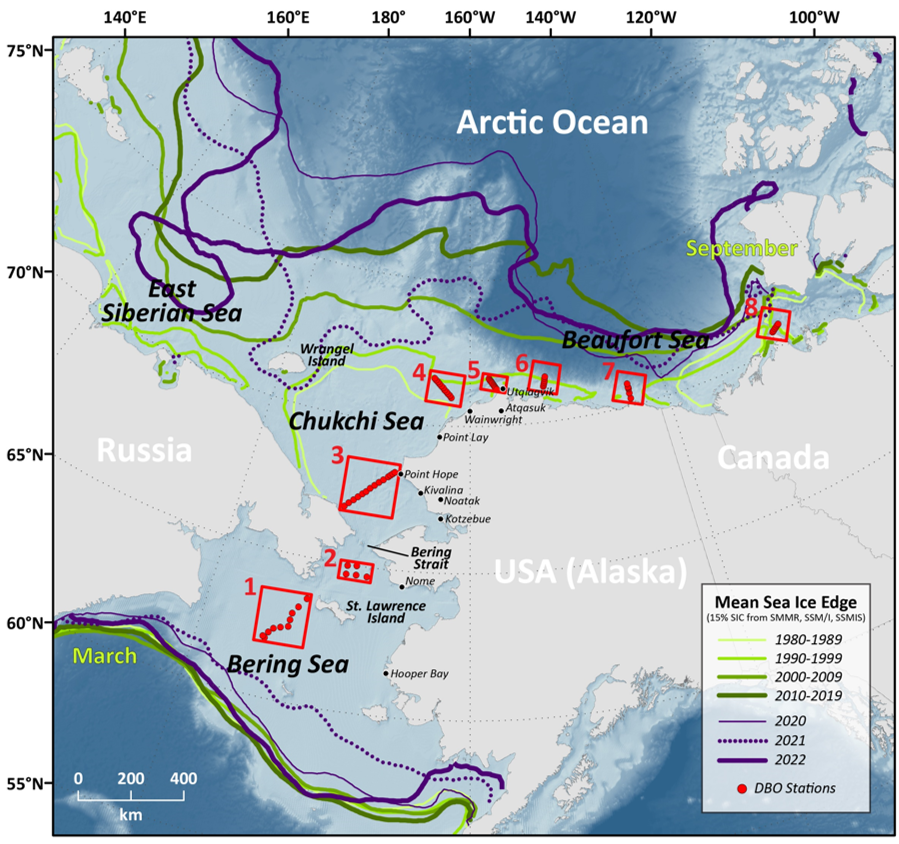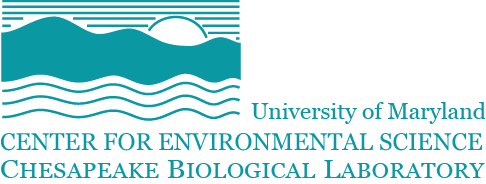Welcome to the Arctic research website at
UMCES Chesapeake Biological Laboratory
Welcome to the Arctic Research website at the Chesapeake Biological Laboratory (CBL) of the University of Maryland Center for Environmental Science (UMCES). This website is meant to provide information about ecosystem and biogeochemical research in the Arctic, particularly the work of Jacqueline Grebmeier and Lee Cooper.
Our team at CBL includes faculty research associates, Stephanie Soques, Alicia Clarke, Joanna Snellings, Syeda Sadia Ali, and Brian Marx. We also have post-doc Chao Wang and graduate student Natalia Herb. Christina Goethel, PhD, is an Assistant Research Scientist at CBL and also a visiting professor at St. Mary's College of Maryland. Alynne Bayard helps us with mapping our data using geographical information system technology (GIS) as well as producing graphics, and quality assurance for data we share with the scientific community. Cédric Magen provides expertise on a part-time basis for CBL's stable isotope lab.
Featured Research:
Distributed Biological Observatory (DBO) 
One of the pressing needs for evaluating climate change impacts on biological systems in the Arctic (and globally) is the need for sustained observations of changes in biological systems. Biological observations cannot be automated to the same extent as many physical measurements can (e.g. salinity on moorings, etc.). As a result, there is much less scientific documentation of how biological systems are changing and/or adapting as a result of environmental change. We were involved in a science planning process supported by the National Oceanic and Atmospheric Administration, National Science Foundation, the international Pacific Arctic Group, and the International Arctic Science Committee, to initiate more systematic biological observations in the Pacific Arctic sector. This has evolved into the Distributed Biological Observatory (DBO) which takes advantage of increased multi-national interest in the larger Bering Strait region. Jackie Grebmeier (jgrebmei@umces.edu) is the key contact for this effort and further information on the DBO effort can be found at the DBO website, https://dbo.cbl.umces.edu/.
Scientific results from the DBO project have been presented at a number of scientific meetings, including a special session at the 2018 Ocean Sciences Meeting that will be held in Portland, Oregon, USA from Feb 11-15, 2018. Submissions to a special issue of Deep-sea Research II on DBO scientific results are now underway.
The PAG2024 Spring meeting was held March 24, 2024 in Edinburgh, Scotland. The final report can be downloaded here. Presentations can be downloaded by clicking on the links embedded in the report.
The 5th DBO Data Meeting was held January 22-23, 2020 in Seattle, WA, USA. The final report can be downloaded here. Presentations can be downloaded here.
The 4th DBO Data Meeting was held November 8-9, 2017 in Seattle, WA, USA.
Presentations from the 2017 4th and 2016 3rd Distributed Biological Observatory (DBO) Workshops as well as the 2014 Pacific Arctic Group (PAG) Meeting (http://pag.arcticportal.org/) are posted below:
4th Distributed Biological Observatory (DBO) Workshop
November 8-9, 2017; Seattle, WA:
Click here for final report
Click here for presentations
3rd Distributed Biological Observatory (DBO) Workshop
March, 9-10, 2016; Seattle, WA:
Click here for final report
Click here for presentations
Pacific Arctic Group (PAG) Meeting
October 28th - 29th, 2014; Seattle, WA
Click here for presentations
Dr. Monika Kędra from the Institute of Oceanology, Polish Academy of Science, is an international collaborator in the DBO, working with Dr. Jackie Grebmeier on benthic taxonomic issues. She has prepared a benthic taxonomic portal for organisms collected in the Pacific Arctic region. To access the site, see: http://www.iopan.gda.pl/projects/DBO/
